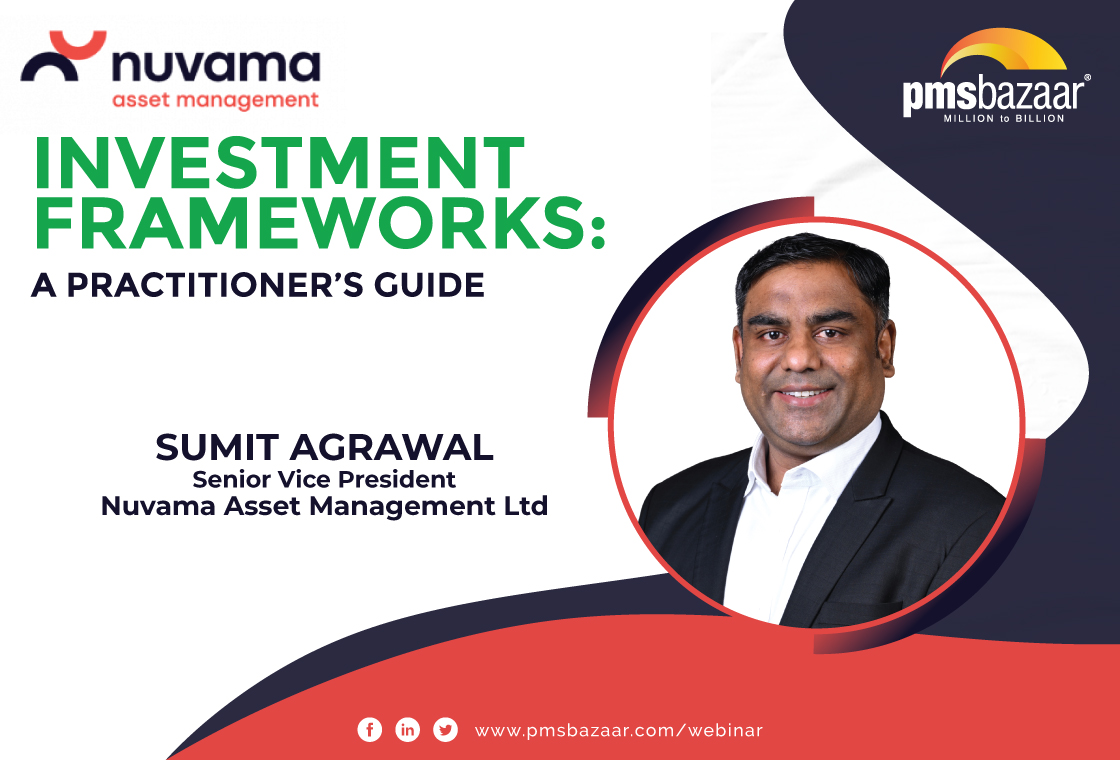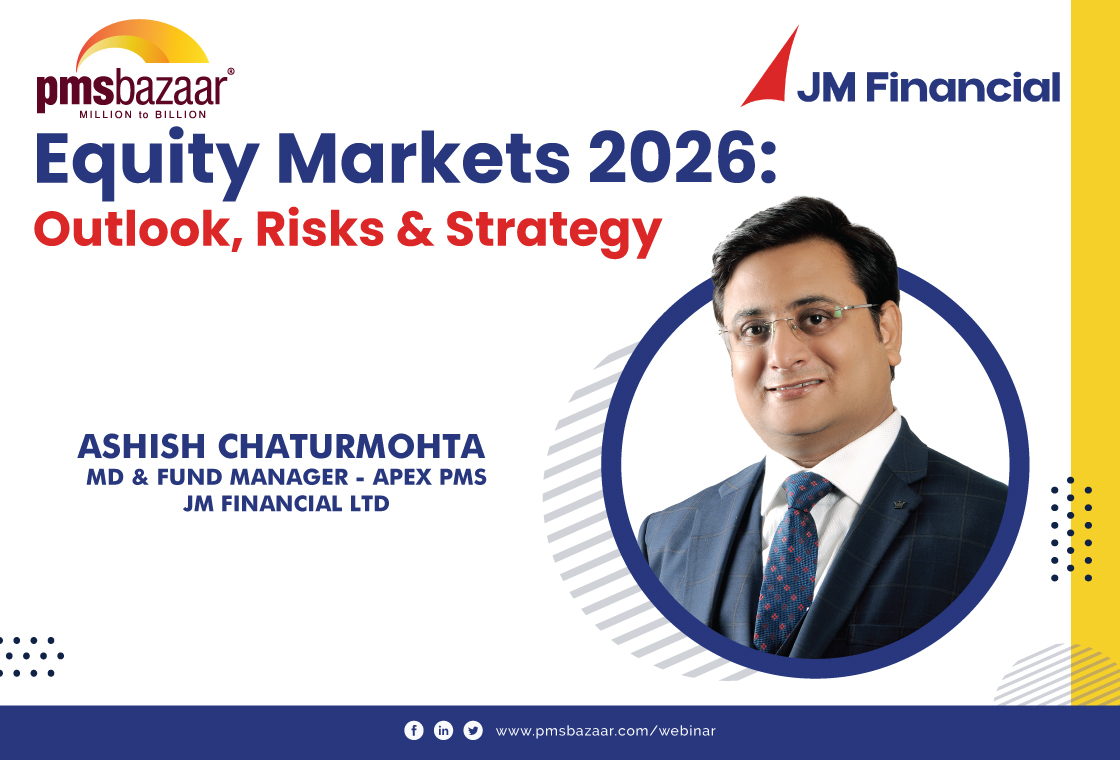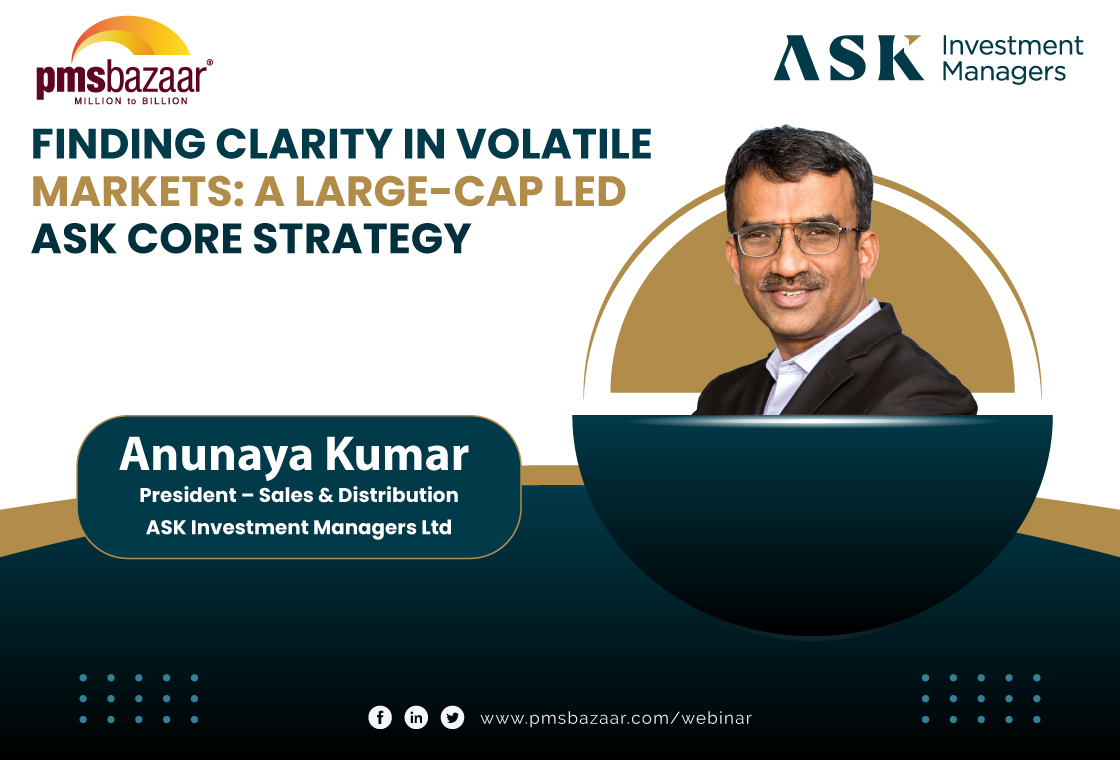The stories of Flipkart, Paytm, Nykaa and other start-ups that define India are well-known. In a small but significant way, these unicorns also represent the dreams and aspirations of a new breed of corporates since they have been built by first-generation entrepreneurs. They developed business models that would not only meet unmet needs of the masses, but also attracted huge bets from investing capital from around the world. As we have seen, many of these homegrown start-ups are going for public listings aka IPOs and thereby creating history again in the public equity market. To talk about this very interesting opportunity, PMS Bazaar recently hosted Avendus and its top leadership in a webinar titled 'The Coming Transformation of India's Public Equity Markets'. The speakers were Ranu Vohra, co-founder and executive vice chairman, Avendus Capital and Tridib Pathak, co-head of equity, Ocean Dial Asset Management India and fund manager, Avendus Olivo (PMS strategy). The insightful session was anchored by Sivaram.

About Avendus
Avendus is a leading provider of financial services and lays emphasis on creating customized solutions in the areas of asset management, credit solutions, investment banking and wealth management. It is 22 years old. The company has 4 lines of business: Investment banking, Wealth management, Asset management and Credit solutions. The company is backed by KKR, one of the pioneer alternative investment managers globally.
Avendus is one of India's alternative asset management platforms. It oversees a total AUM of $1.02 billion. It has 9 specialized funds under 3 differentiated strategies viz. long-short, long only and private equity, says Ranu Vohra. Avendus is well-known for its institutionalised public and private investment approach. It boasts of strong onshore as well as offshore operations.
The digital wave
Before delving deep into the digital revolution that is swamping every nook and corner of India, let us first understand the vantage point from where Avendus speaks. The company's digital & tech investment banking unit is a maverick in this space. There is a dedicated 38-member strong team focussed on digital & tech here.
It has clocked $6 billion+ aggregate or 50 digital and tech deals in the last 18 months alone, something many of the large i-banks rarely do in many years. The skill and expertise has helped Avendus emerge with a 60 per cent market share in digital and technology amongst i-banks. The company has been helping companies raise capital, do strategic transactions and M&A. It has been the advisor of choice for unicorns with 150 plus deal closures over 8 years, and has worked with key names in this space such as Nykaa, Licious, Infra Market, Bookmyshow, Zeta, Pharmeasy etc. Along the way, $4 billion plus liquidity has been generated by Avendus investors/shareholders, thereby keeping the fund flow wheel spinning for the ecosystem.
"The digital ecommerce world is moving from private space to public markets. At the root of all this is the mainstreaming of digitalization. Rising digital adoption by consumers and the booming nature of the consumption economy," says Tridib Pathak.
Traditional businesses or enterprises, be it large, medium, or small, are starting to adopt digitalization in their businesses. This has given a major boost to the ecosystem.
"Public listings of many startup digital and tech companies are happening, thus enabling public participation in the digital economy which is going to be huge...it has just started for india. The digital breakout is happening," adds Tridib.
The digital breakout point needs to be understood well. The per capita at digital breakout levels is China crossed the $2000-2500 barrier in 2006 2007. India is in that range currently. All this leads to more users becoming online shoppers or transactors. In China, nearly half of its population transacts online and a very strong ecosystem has already been created. "India is following China with a lag....India's consumer digital economy will go up 25% CAGR, i.e. 10x in 10 years from a base of around $80 billion now. Online shopper base will rise from 150 million in CY21 to 350 million by CY23,"
A permanent theme
There are several factors that are aiding this high level digital adoption. Firstly, there is an increasing focus on Tier-2 cities. Secondly, the growing online spend by digital natives is boosting adoption. Thirdly, supply-side innovations such as vernacular based user interfaces, and visual search are leading to higher uptake. Fourth but not last, Covid-19 pandemic has led to probably the biggest change: digital adoption has become about convenience, while discounting has taken a backseat.
World over, digital evolution examples are plenty. And, this is redefining the limits of business so far touched by traditional enterprises. China's Meituan, for instance, delivers as much food in 3 days as Swiggy and Zomato do in 1 month. And we all know how Swiggy and Zomato practically carry the inventory of thousands of restaurants on their shoulders each day. Given the success tasted by digital adoption means in China, bets are high that this can happen in India as well.
Seen in the Indian prism, Tridib said at the root most of the e-commerce digitally-powered businesses are transaction platforms. To put them simply, they are convenience businesses. Horizontal businesses are Jiomart and Indiamart. Vertical business examples are Bigbasket and Nykaa. In services obviously there are Zomato and Swiggy. Tridib pointed out that if one takes a look at all these businesses in a deglamorized manner, they will realize these are selling products and services using the digital channel.
Chasing profitless growth?
One of the biggest doubts that are floating around e-commerce/digital businesses is the absence of profit at this moment. So, are funds and institutions investing in profitless prosperity?
Tridib has an explanation that may lead to a better understanding of such businesses. "In traditional business, there is a project implementation period. Capex happens. Project is commissioned and then sales come in. Profit comes after that. In most digital e-commerce digital businesses, there is no particularly long project implementation period. Sales start from day one. They are focussed on building business, changing customer habits. Hence, they are bound to make losses. When you get a critical mass, your path to profitability comes through," shares Tridib.
Given the absence of profit or low profit in the early stages of such businesses, it is important to use the right technique to value such companies. According to Avendus, there is only one way to value a business --- Discounted Cash Flow (DCF) analysis. "Relative valuation measures such as PE, EV by EBITDA, Price to Sales are all mere approximations of the DCF. Near-term relative valuations will always be misleading and optically high in these businesses. In most cases, the share price is building in long periods of high growth. Eventually, they will see profitability over a period," says Tridib.
Avendus prefers to use Reverse DCF analysis. "We try to assess a valuation at the current stock price. We try to find out what is the embedded assumption of certain key parameters. It tells something about the growth expectations. If the growth estimates are conservative, then it shows it is an undervalued company. If the estimates are extremely high, then it's not worthy of investment," Tridib adds.
Key thoughts
According to Ranu, it is important for investors to evaluate new high-growth business models. Look at the total addressable market or TAM. Also, the key is to understand the competitive landscape, find out about unit economics in such businesses. He said investors must understand that profitability (long term models) will eventually happen in good businesses. At this moment, data shows 30 per cent unicorn companies are already profitable at the EBITDA level.
"The capital market will see what the private market saw over the last 10 years. Some great companies are coming to the capital market. It is important to make the right choices. Don't be too swayed by one metric: valuation. It's important to choose the right business, rather than focus on valuation or price," Ranu said.
Explaining Avendus Olivo PMS product (core equity portfolio), Tridib shared about its strategy that is focussed on investing in long only listed equities. Olivo aims to maintain a high-conviction focussed portfolio, with special focus on businesses benefitting from next generation mega-trends including mainstreaming of digitalization. The basket is well-diversified across market caps, sectors, themes and trends. "Fundamental-oriented long term investing based on a diligently followed investment process and research orientation is evident here. We have a buy and hold mindset, with low portfolio turnover. In short, this is an all seasons core strategy," Tridib added.
In the elaborate Q&A session that followed the insights, Ranu and Tridib answered some very interesting queries.
One PMS Bazaar subscriber asked about the crackdown on tech firms in China and whether this would give some advantage to India. Responding to this query, Ranu said while India is still several years behind China, global investors are beginning to hedge China in some way. "We were having a conversation with an Asian investor who wanted to allocate entirely to China. Now 25 per cent will be for India, while 75 per cent will be for China," Ranu pointed out.
On another question on how Avendus assesses management integrity of founders of startups since they have no track record, Ranu said these start-ups are run by professionals, techies. Such promoters' shareholding in the business is low and most often these companies have lived their life from Day 1 with institutional capital. "While one cannot rule out fraud, corporate governance is much better in these start-ups, usually several notches above Corporate India in general," Ranu claimed.
If you missed the opportunity to listen to the experts directly, you can relive the entire session through the appended link below:
For more information, please contact info@pmsbazaar.com
Recent Blogs

January Rout, Extreme Dispersion: PMS Returns Swing From Losses to Gains
Benchmark falls deepened losses, but multi-asset and debt cushioned portfolios meaningfully

Investment Frameworks : A Practitioner’s Guide
PMS Bazaar recently organized a webinar titled “Investment Frameworks: A Practitioner’s Guide,” which featured Mr. Sumit Agrawal, Senior Vice President, Nuvama Asset Management Limited. This blog covers the important points shared in this insightful webinar.

Aurum Multiplier Portfolio - Where Small and Mid-Cap Alpha Meets Large-Cap Stability
PMS Bazaar recently organized a webinar titled “Aurum Multiplier Portfolio - Where Small and Mid-Cap Alpha Meets Large-Cap Stability,” which featured Mr. Sandeep Daga, MD& CIO, Nine Rivers Capital and Mr. Kunal Sabnis, Portfolio Manager, Nine Rivers Capital. This blog covers the important points shared in this insightful webinar.

Flat Markets, Wide Outcomes: How 484 PMS Strategies Performed in Dec 2025
December 2025 was a month where market returns stayed close to flat, with the Nifty 50 TRI at -0.28% and the BSE 500 TRI at -0.24%.

Equity Markets 2026: Outlook, Risks and Strategy
PMS Bazaar recently organized a webinar titled “Equity Markets 2026: Outlook, Risks and Strategy,” which featured Mr. Ashish Chaturmohta, MD & Fund Manager – APEX PMS, JM Financial Limited. This blog covers the important points shared in this insightful webinar.

MICRO CAPS: The Dark Horses of the Indian Equity Market
PMS Bazaar recently organized a webinar titled “MICRO CAPS: The Dark Horses of the Indian Equity Market,” which featured Mr. Rishi Agarwal and Mr. Adheesh Kabra, both Co-Founders and Fund Managers, Aarth AIF. This blog covers the important points shared in this insightful webinar.

Finding Clarity in Volatile Markets: A Large-Cap Led ASK CORE Strategy
PMS Bazaar recently organized a webinar titled “Finding Clarity in Volatile Markets: A Large-Cap Led ASK CORE Strategy,” which featured Mr.Anunaya Kumar, President – Sales and Distribution ASK Investment Managers Limited. This blog covers the important points shared in this insightful webinar.
.jpg)
Passively Active Investing — A Modern Investor’s Lens on ETF-Based PMS
PMS Bazaar recently organized a webinar titled “Passively Active Investing — A Modern Investor’s Lens on ETF-Based PMS,” which featured Mr. Karan Bhatia, Co-Founder and Co-Fund Manager , Pricebridge Honeycomb ETF PMs. This blog covers the important points shared in this insightful webinar.

